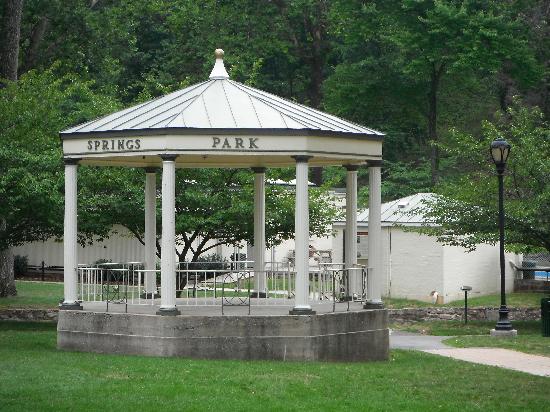I first read this ghost story on a site called, West Virginia Ghosts. This site allows people to share their favorite ghost stories from West Virginia and from around the world.
A contributor from West Virginia told one of my all time favorite stories on this site.
Every year for as long as I can remember my family consisting of my six siblings, my mother and father, my uncle, and my grandparents watched the town fireworks display at our local park in Martinsburg.
We would always arrive early to claim our favorite spot then my mother would bring out an endless supply of food from our picnic baskets.
As we sat and ate, my father, the family storyteller would recount the history of the park to all of us one more time. Between dramatic pauses and whispered awe he would state that the exact spot where we sat was used by both Confederate and Union soldiers during the Civil War as a camp since the park was close to the Baltimore and Ohio railroad depot.
He told us a bloody battle had been fought in the park and that since Martinsburg was the second largest town in the Shenandoah Valley it was a major strategic location. During the war the town had changed hands between the Confederate and Union troops 37 times. *
Following our usual routine my siblings and I got up to explore after we ate. But this year we regretted our decision for we missed out on a bit of authentic history.
My uncle and grandparents stretched out on our blankets waiting for the evening’s events to begin. My mother and father proceeded to clean up the leavings from our outdoor feast.
The breeze changed direction and my father noticed an awful smell. He glanced in the direction from where this odor originated. He saw a strange boy–a teenager–leaning against a nearby tree.
The odor became stronger and my grandfather sat up and watched the teen along with my father. My mother spoke up, “What is that smell?”
My father looked over at her. “It reminds me of rotten garbage.” My grandfather nodded and chimed in. “It is either horse sweat or rancid meat.”
Disgusted, my father shouted at the teen. “Get out of here, you are stinking up the place.” The boy showed no sign that he had heard my father.
My mother rushed off announcing she intended to get help. When she returned minutes later with a police officer she pointed toward the tree. But she realized the boy was no longer there.
She looked down at my uncle, my grandparents and my father and realized they were being uncharacteristically silent.
My grandfather spoke not to anyone in particular. “He just disappeared in front of our eyes.” He then looked over at the officer. “I know you won’t believe us but I am pretty sure what we saw was a ghost.”
That night two other groups complained about the “foul-smelling boy.” Several officers looked for him but he was never found.
The next day my father ran into the same officer in town. He sheepishly told my father, “Every one described that boy the same way.”
He was 5 feet tall, wore tattered brown pants, a dirty red checked shirt, suspenders, no shoes, had fifty feet, and a floppy weird cap with a small brim.
 |
| Example of a Kepi cap. |
The officer hesitated and then asked my father, “Do you think he could have been a Confederate soldier?”
My father who was a history buff replied, “Well, Confederate soldiers were often ragged, soap was in short supply and they did wear caps with small brims called, kepis.”
I remember that fourth not because of the fireworks but because my siblings and I missed out on seeing a ghost.
* More information about the Civil War and Martinsburg, West Virginia can be found here.
 |
| Original version of this story can be found in Moore’s book. |


